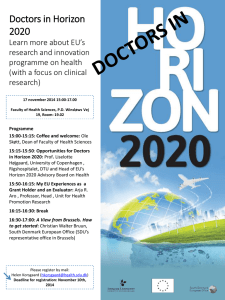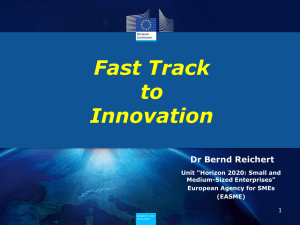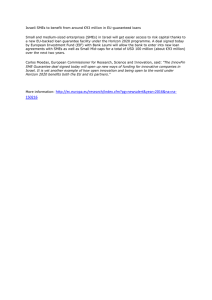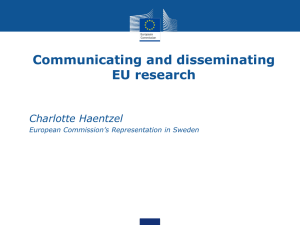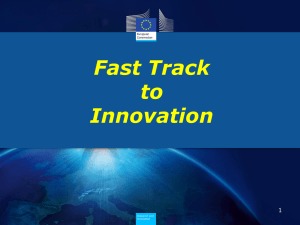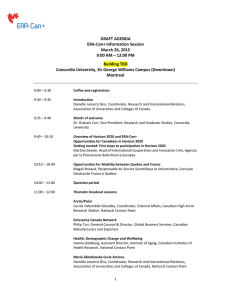USA – Country Page
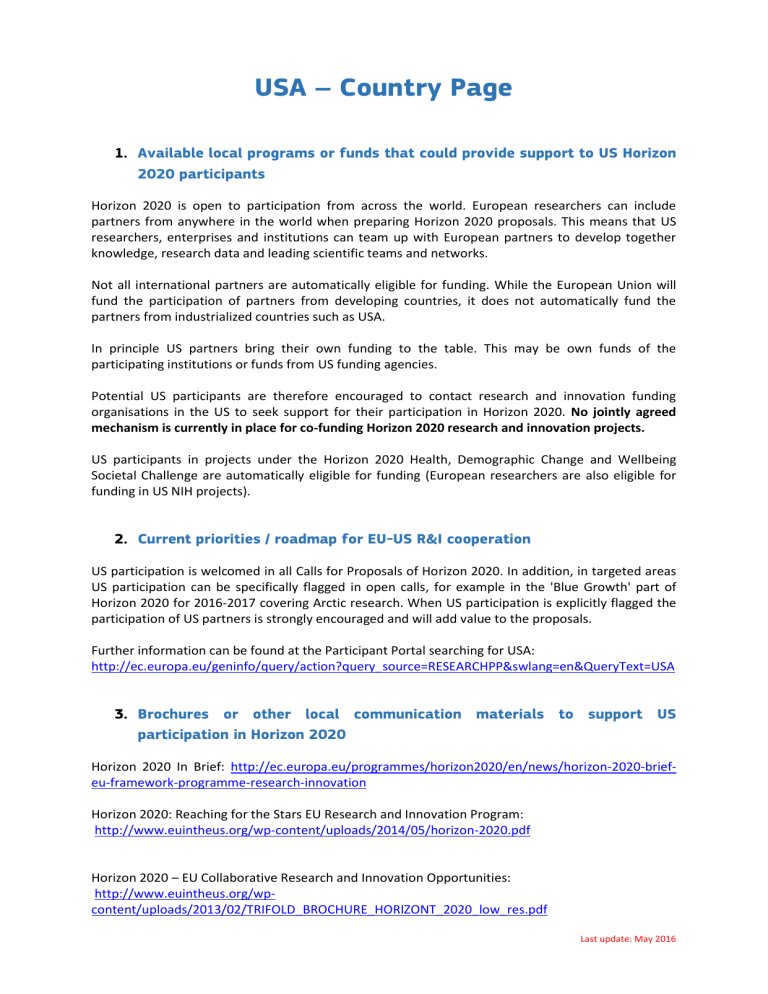
USA – Country Page
1.
Available local programs or funds that could provide support to US Horizon
2020 participants
Horizon 2020 is open to participation from across the world. European researchers can include partners from anywhere in the world when preparing Horizon 2020 proposals. This means that US researchers, enterprises and institutions can team up with European partners to develop together knowledge, research data and leading scientific teams and networks.
Not all international partners are automatically eligible for funding. While the European Union will fund the participation of partners from developing countries, it does not automatically fund the partners from industrialized countries such as USA.
In principle US partners bring their own funding to the table. This may be own funds of the participating institutions or funds from US funding agencies.
Potential US participants are therefore encouraged to contact research and innovation funding organisations in the US to seek support for their participation in Horizon 2020. No jointly agreed mechanism is currently in place for co-funding Horizon 2020 research and innovation projects.
US participants in projects under the Horizon 2020 Health, Demographic Change and Wellbeing
Societal Challenge are automatically eligible for funding (European researchers are also eligible for funding in US NIH projects).
2.
Current priorities / roadmap for EU-US R&I cooperation
US participation is welcomed in all Calls for Proposals of Horizon 2020. In addition, in targeted areas
US participation can be specifically flagged in open calls, for example in the 'Blue Growth' part of
Horizon 2020 for 2016-2017 covering Arctic research. When US participation is explicitly flagged the participation of US partners is strongly encouraged and will add value to the proposals.
Further information can be found at the Participant Portal searching for USA: http://ec.europa.eu/geninfo/query/action?query_source=RESEARCHPP&swlang=en&QueryText=USA
3.
Brochures or other local communication materials to support US participation in Horizon 2020
Horizon 2020 In Brief: http://ec.europa.eu/programmes/horizon2020/en/news/horizon-2020-briefeu-framework-programme-research-innovation
Horizon 2020: Reaching for the Stars EU Research and Innovation Program: http://www.euintheus.org/wp-content/uploads/2014/05/horizon-2020.pdf
Horizon 2020 – EU Collaborative Research and Innovation Opportunities: http://www.euintheus.org/wpcontent/uploads/2013/02/TRIFOLD_BROCHURE_HORIZONT_2020_low_res.pdf
Last update: May 2016
Bilat 2.0 - Horizon 2020 Guide for US researchers: http://www.euussciencetechnology.eu/sites/default/files/H2020%20Guide%20for%20US%20researc hers%20FINAL_0.pdf
4.
Website of the Delegation of the EU to the USA
Additional information on Horizon 2020 can be found on the website of the EU Delegation: http://www.euintheus.org/what-we-do/policy-areas/research-development-and-innovation/
5.
Local National Contact Points and other assistance services
The network of National Contact Points (NCPs) is the main source of guidance, practical information and assistance on all aspects of participation in Horizon 2020.
The list of National Contact Points can be found at the Participant Portal, by country, thematic areas and/or function, here: http://ec.europa.eu/research/participants/portal/desktop/en/support/national_contact_points.h
tml
The US 'pilot' NCP:
Mr. Jesse SZETO, Senior Manager, NCURA Global
National Council of University Research Administrators
1015 18th Street, NW, Suite 901
Washington, DC 20036, U.S.A.
Tel.: +1 (202) 466-3894 szeto@ncura.edu
Euraxess provides access to a complete range of information and support services for anyone wishing to pursue a research career in Europe. Euraxess-Links offers local networking and information opportunities in a number of countries, including North America.
Euraxess-Links North America: Viktoria BODNAROVA - viktoria.bodnarova@euraxess.net.
More: http://ec.europa.eu/euraxess/index.cfm/links/eurRes/north_america
Information on key research and innovation interlocutors in US may be found through the BILAT USA
2.0
project funded by the European Union under FP7. It is a bilateral coordination activity to enhance and develop science, technology and innovation partnerships between the European Union and the
United States of America. More details on: http://www.euussciencetechnology.eu/
Last update: May 2016
